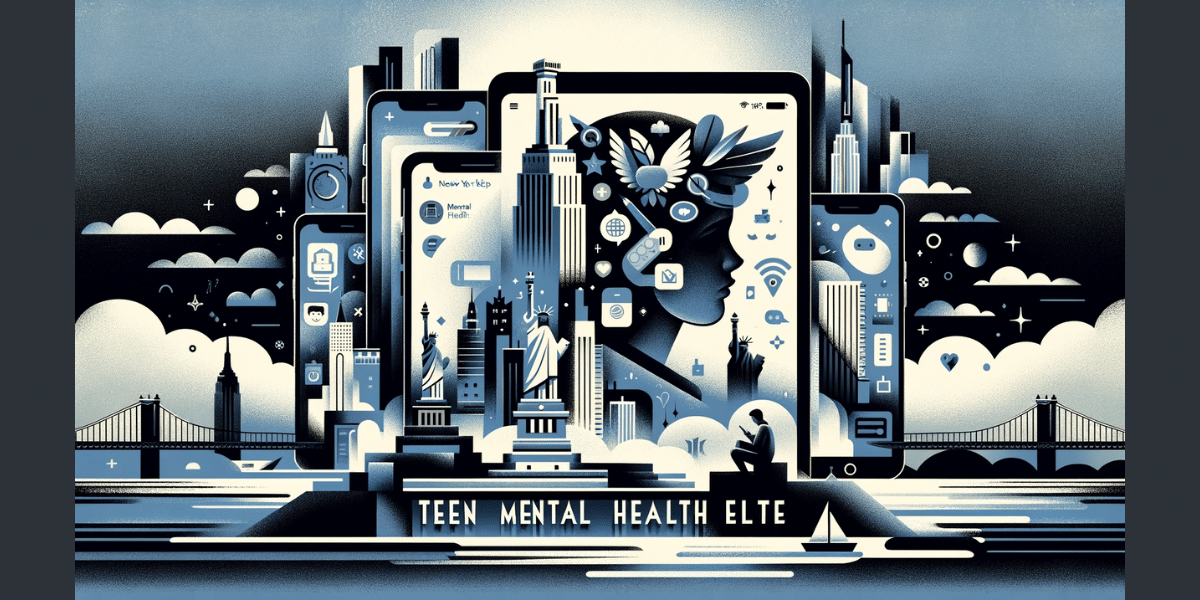In an era where digital solutions are sought for nearly every aspect of life, the realm of mental health is no exception. With a significant rise in mental health concerns among adolescents, there has been a parallel increase in the development and use of mental health apps targeted at teens. These apps range from mood trackers and meditation guides to full-fledged therapy and counseling services. As with any technological advancement, these apps come with their benefits and drawbacks, making it crucial to examine whether they are a boon or a bane for teen mental health.
A Digital Solution to a Growing Problem
The statistics surrounding adolescent mental health are alarming. According to the National Institute of Mental Health, in 2020, an estimated 49.5% of adolescents had any mental disorder. Mental health apps have emerged as a potential solution, offering accessible and immediate support. They are particularly appealing to teens, who are digital natives and often more comfortable seeking help online than in traditional settings.
Advantages of Mental Health Apps
The primary benefit of these apps is accessibility. They provide a platform for teens who might not have access to traditional mental health services due to geographical, financial, or social constraints. These apps offer a level of anonymity, which can encourage more teens to seek help without fear of stigma.
Additionally, many of these apps use engaging, interactive formats that are appealing to a younger audience. They incorporate elements of gamification, making the process of managing mental health both educational and enjoyable. Some apps also provide resources for developing coping skills and resilience, which are crucial in adolescent mental health.
Concerns and Limitations
However, the rise of mental health apps is not without concerns. The most significant is the question of efficacy and safety. Not all apps are created equal, and some may lack scientific backing or adequate privacy protections. There is also the risk of over-reliance on these apps, potentially delaying professional help for more severe mental health issues.
Evelyn Llewellyn, a psychologist from Connecticut specializing in adolescent mental health, raises concerns about the lack of personalization in these apps. While they can offer general advice and support, they cannot replace the tailored care that comes from a trained mental health professional who understands the unique circumstances of each individual.
The Regulatory Landscape
Another issue is the regulation of these apps. The digital mental health space is relatively new, and many apps are not subject to rigorous clinical evaluation or regulatory oversight. This lack of standardization can make it challenging for users to discern which apps are effective and trustworthy.
Integrating Apps with Traditional Care
For optimal results, these apps should be used as a complement to traditional mental health care, not a replacement. They can be excellent tools for self-management and support but should be integrated into a broader care plan overseen by a mental health professional. This approach can ensure that teens receive comprehensive care that addresses their specific needs.
Educating Teens and Parents
It’s crucial for both teens and their parents to be educated about the potential benefits and drawbacks of these apps. Understanding how to choose the right app, use it effectively, and recognize when professional help is needed is key to making the most of what these digital tools have to offer.
The Role of Schools and Communities
Schools and communities can play a role in guiding teens towards appropriate use of mental health apps. By providing resources and information, educators and community leaders can help adolescents navigate the digital mental health landscape safely and effectively.
Conclusion
In conclusion, mental health apps represent both a boon and a bane in the context of teen mental health. They offer unprecedented access to mental health resources but also pose challenges in terms of efficacy, safety, and the potential for misuse. As we navigate this digital revolution, the guidance of mental health professionals, educators, and parents will be crucial in ensuring that these tools are used effectively and safely. With the right approach, these apps can be a valuable addition to the mental health resources available to today’s adolescents.
Published By: Aize Perez

















